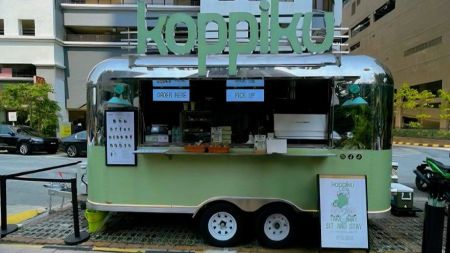Rolling Kitchens

How Commercial Vehicles are Powering Malaysia’s Food Truck Trend
From city streets to night markets, food trucks are now a familiar part of Malaysia’s urban life. More than a trend, they show how commercial vehicles are being reimagined as tools for business and customer engagement.
What Makes a Food Truck Work?
At its core, a food truck is a commercial vehicle converted into a compact kitchen. Most are built using light-duty trucks, vans or trailers. The interiors are designed for full food service, with essential cooking and hygiene systems built in.
These include grills or coffee machines, water tanks, refrigeration and ventilation. Power often comes from a generator or battery setup. Outside, custom paintwork and service windows help attract customers and improve efficiency.
Proper conversion is critical. Weight balance, electrical safety and hygiene must meet regulatory standards. Local councils also have specific requirements around cleanliness, location and waste handling.
Why Choose Wheels Over Walls?
Food trucks offer flexibility. Operators can change locations, adapt to demand and access events without the high costs of a permanent shop. This appeals to new entrepreneurs and established brands alike.
They can also test menus and build customer bases before expanding. The casual atmosphere suits changing urban lifestyles, especially among younger consumers looking for quick, quality meals on the go.
Malaysia’s Food Truck Scene
In areas like Kuala Lumpur, Shah Alam and Johor Bahru, food trucks now serve a wide range of offerings, from street food classics to specialty drinks. Some operate as part of night markets or scheduled food truck parks.
One business uses a small trailer setup in Mont Kiara to serve coffee in a grab-and-go format. While smaller than a full truck, it highlights how mobile setups can support focused F&B concepts in high-traffic locations.
Success often depends on smart location choices, operational consistency and well-equipped vehicles.
A Growing Role for the Truck Industry
As mobile F&B grows, so does demand for custom vehicle work. Builders who specialise in mobile kitchens are helping operators meet food safety rules while maximising space and performance.
Leasing providers may also find new interest from food truck startups. Some operators are beginning to explore electric vehicle options, especially where emissions rules apply.
This sector creates opportunities for suppliers of water tanks, lightweight fittings and compact refrigeration. Regular servicing is also important, as these vehicles face intensive daily use.
More Than Transport
Food trucks prove that commercial vehicles are not limited to deliveries. They can be used for real-time service, face-to-face business and day-to-day operations.